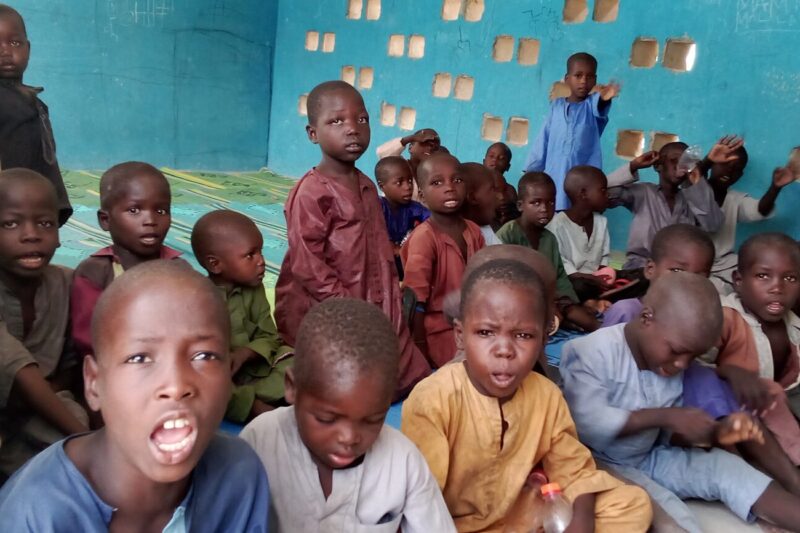The federal government in Nigeria is “repackaging” the country’s school-feeding programme, believing that no child can learn effectively on an empty stomach.
It is hoped that the revised programme would entice children to attend classes. Because of extreme poverty, in many cases, it could be the only food the children might have that day.
Sony Echono, the permanent secretary of the Federal Ministry of Education, said by repackaging the feeding programme it would reach more pupils and ensure the country’s children would have the best form of education.
It would also enable children to focus on their work without suffering from hunger pangs.
The Nigerian Home Grown School Feeding Programme was initiated to improve the health and educational outcomes of public primary school pupils, serving them with food that was locally grown by smallholder farmers. It was offered to children from primary one to primary four, providing them with nutritious mid-day meals on every school day.
It was also aimed at improving school enrolment and attendance.
In an interview with the News Agency of Nigeria on Monday, May 24, Echono said although the programme was under the supervision and control of the humanitarian affairs, disaster management and social development ministry, the education ministry was collaborating with it to deliver the best outcomes.
“The school feeding programme is being repackaged to make it more focused and to have more impact,” he said.
The Child and Family Foundation said empty tummies resulted in empty heads. “If the brain is not supplied with sufficient nutrients, then its entire development is affected. The ability to learn is therefore compromised. And, by extension, a successful school career is endangered.”
The food programme that was offered by many schools in Maiduguri did not only entice children to attend classes, it was also sometimes the only meal a child received for the day.
Mohammed Mustapha, a teacher at Budum Primary School in Maiduguri, said the programme had motivated many pupils to attend classes.
Mustapha said children would not learn anything if they were hungry.
He said it was imperative for the government to resume the programme. Many children had dropped out of school because the programme had stopped.
Maryam Abbagana, a pupil of Yemi Osinbajo Primary in Maiduguri, said the school had stopped the programme in February. She wished the government would continue the programme, saying it would entice more children to attend school.
Falmata Wakil, a pupil at Budum Primary School, said she had been given food at school until the programme stopped three months ago.
Isa Mustapha, another pupil of Budum Primary School, said that until it had ended, the school had given them an egg and jollof rice every school day.
- In January President Muhammadu Buhari approved the extension of the school feeding programme to Almajiri schools and for other children in non-conventional education settings.







